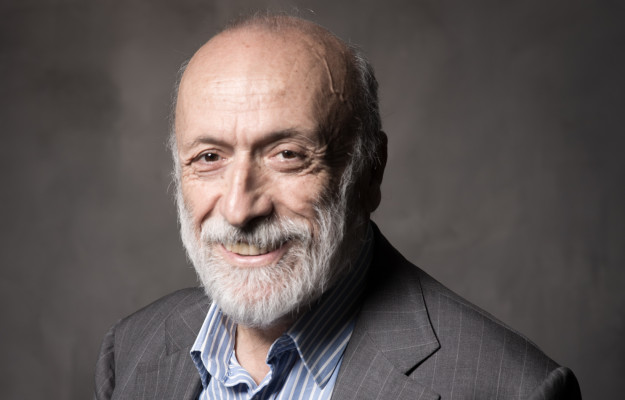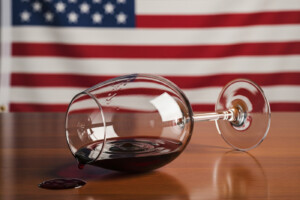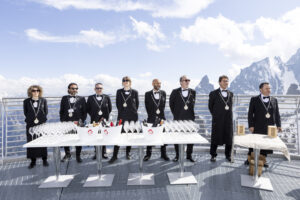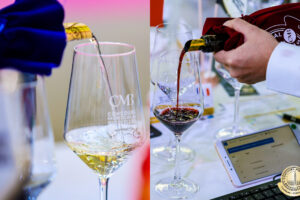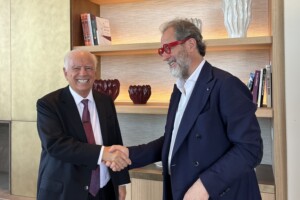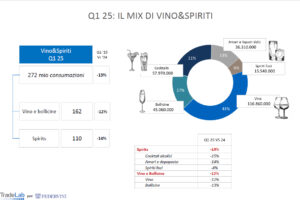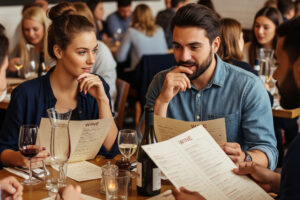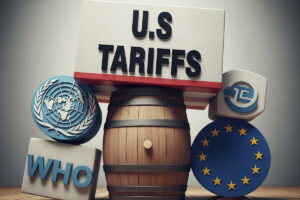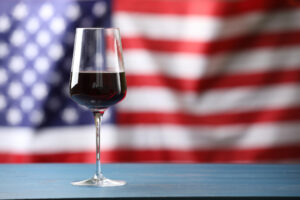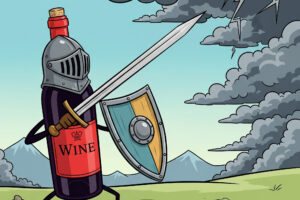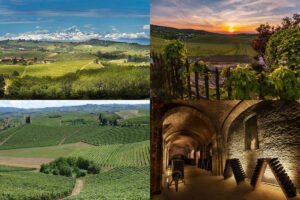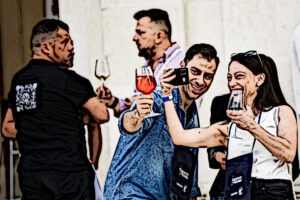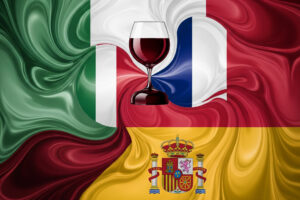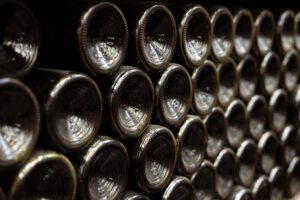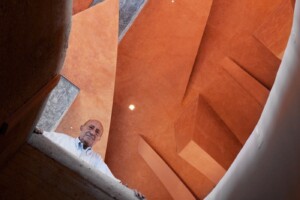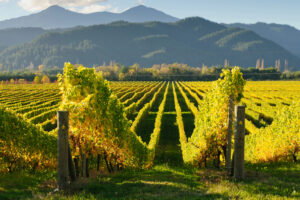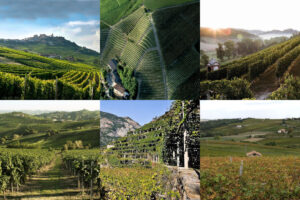“The repercussions of the non-export of Ukrainian wheat due to the war do not only affect our home, but in a much stronger way in Africa, in countries like Lebanon, which is particularly dependent on it. For us there is an undoubted reflection, but it should be emphasized that the fundamental discourse of food sovereignty, in essence, has not passed through many parts of the world, including Italy”. The words of Carlo Petrini, founder of Slow Food and of the University of Gastronomic Sciences of Pollenzo, who in an interview with the Agi Agency reiterated a concept expressed several times in the past, also to WineNews. Already in 2013, for example, he underlined the need for a return to the land for young people: “we need farmers, we are around 3%, but to guarantee food sovereignty in our country we should have at least 12%”. But the theme of food sovereignty is, above all, the heart of “Terra Madre – Come non farci mangiare dal cibo”, the book of 2009 (we wrote about it here) in which Carlo Petrini faced the challenges of a world in which “food is that man eats, and not the other way around”, in an industrial agri-food system that dominates the planet, in which food has become a commodity like any other, whose price is established by inhuman market rules, regardless of quality and without respecting those who produce it.
Since then, very little has changed in the food production structure, but to understand the real value of agriculture in today’s economic system, put in check first by the boom in the cost of materials and then by the war in Ukraine, it is necessary to look even further backward. “Compared to wheat – explains Petrini speaking of the price increases due to the war – up to 5/6 years ago its price was the same as what was paid 35 years ago. It would be like saying that we paid farmers for grain as if we were giving an employee the salary of 35 years ago, this is the appropriate comparison. This is why we have abandoned entire areas that have always been characterized by strong cereal growing, and have chosen more profitable crops, some of which have even become invasive. Think about what hazelnut cultivation means today in areas like Viterbo or in my Piedmont: it has become an impressive monoculture. But if this tense situation continues, we will pay for grain much and much more expensive than what the farmers would have had to pay when we produced it. The reason why in these situations, stopping to reflect on a crop planning that a civilized country should have is very important”.
A reflection that can also be symmetrically approached with respect to the theme of “energy resources”, adds the founder of Slow Food. “A situation that puts us great embarrassment, because ultimately paying for gas to Russia also means paying for Putin’s war. Why we have waited so long to keep an intensive renewables process going by hindering it with a series of permit difficulties? The paradox is that now many are pushing to return to coal or to rethink nuclear power, nothing more absurd. The same goes for food. Waiting to choose to strengthen our food sovereignty is wrong, we can no longer think pf depending on other realities, today on Russia tomorrow who knows, because at the fisrt dramatic situation like the one that has now occurred we remain on the ground. This aspect should be strengthened first of all. For example, we have been waiting for years for a law on soils that does not come into effect, and soils continue to be depleted, especially agricultural land. We can no longer afford this luxury”.
Carlo Petrini, therefore, indirectly responds to the proposal of the President of Confagricoltura, Giansanti, who indicated three possible solutions to get out of the corner: the cancellation of the limits to the cultivation of Italian land; a European plan to monitor cereal stocks; an Italian plan for a greater cultivation of soft wheat, corn and soil seeds, the shortage of which was highlighted by the stop to imports from Russia and Ukraine. “Advocating for planning is not wrong. It depends on what interests we carry it out. We are at a time when we need to make the needs of producers coincide with the needs of citizens. So planning is a matter that concerns everyone and must be carried out in an interdisciplinary way, involving everyone, but correct planning would be desirable. The concept of food sovereignty - continues the founder of Slow Food - is not necessarily a self-sufficient concept but absolutely a harmonious development of resources to also strengthen the existence of a local economy. We cannot think that the whole economy is a globalized economy, we must be aware that we must strengthen the local economy because the local economy demonstrates the participation of all citizens but also the defense of the soil, the landscape, our memory historical. It is not a strictly self-sufficient element, it is an element of respect for the local economy”.
Food sovereignty and self-sufficiency, therefore, “are different concepts. Countries that have total autonomy with respect to food are rare, very rare. But to develop it in a harmonious way, in my opinion, it is possible. And, I repeat, increase the local component because every country cannot help but pay attention to food sovereignty”. Which also passes through an acceleration on organic farming, because “if we do not take advantage of this moment to regenerate production, we are destined to go towards the abyss, towards an environmental disaster that can become irreversible. The verb regenerate is the distinctive element of this historical phase. So not only organic but also crop rotation, maintenance of the territories, guaranteed the flow of water, reducing the impact of extreme rains, are attention that we must have regardless. However, organic is never more a practice than now that we must implement and intensify. And these issues cannot remain exclusive to the producers, they are the ones who must personally encourage them but must share all their citizenship ", adds Carlo Petrini.
Returning to the price of wheat and Ukraine, “here it is a question of rebuilding an economy, it is not so automatic that a country thus brought to its knees will return to sufficient production. The reconstruction will have a serious price and at the same time in the reconstruction, there is also that of enhancing the treasure, the heritage that these lands have. So I hope that, once this madness has been stopped and a reconstruction process started, however, this production will once again be significant for the benefit of other realities as well. But every country, it must be said, must create the conditions for not being too dependent on food compared to others. I would like to be clear: in our country we have 38% of food waste, this means that we not only throw away the goods but that we occupy land at the agricultural level that is useless because the production is not used, so we make use of water. to sprinkle them unnecessarily. It is all a huge waste. The first field to be plowed is its reduction. Here there is also the recognition of a fair price and a planning choice that pays the farmers fair and encourages them to practice virtuously”, concludes the world president of Slow Food.
Copyright © 2000/2025
Contatti: info@winenews.it
Seguici anche su Twitter: @WineNewsIt
Seguici anche su Facebook: @winenewsit
Questo articolo è tratto dall'archivio di WineNews - Tutti i diritti riservati - Copyright © 2000/2025










